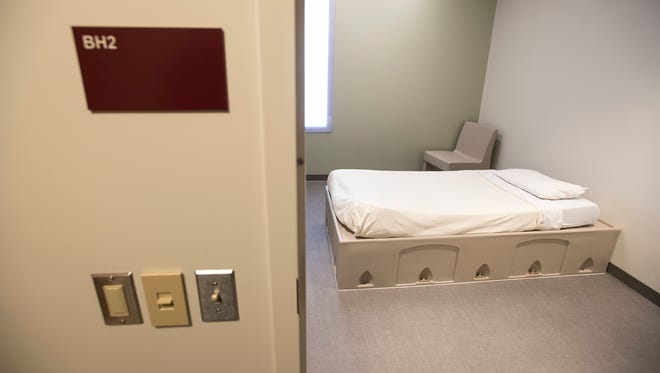
“Not medically needed.”
With a few phrases, our insurance policies business failed us.
Our insurance corporation failed our teenage son and as a outcome, he compensated with his life.
We paid with unimaginable, unending, all-consuming grief.
On Jan. 11, 2015, our 15-12 months-previous son, Jake, died by suicide. He died for the reason that our insurance organization considered his psychological well being procedure as not medically required, in direct contradiction with the evaluation of his medical practitioners.
No other relatives should have to expertise the variety of decline we have endured.
Court docket ruling available needed protection
Along with a lot of psychological health advocates, we rejoiced on Feb. 28, 2019, in reaction to a landmark ruling in just one of the most important wellness policy circumstances of the 21st century, Wit v. United Behavioral Health (UBH).
In the ruling, a judge uncovered that UBH (the greatest insurance provider in the country) was improper to use its internally formulated standards for coverage instead of frequently acknowledged scientific benchmarks. We thought insurance policies providers would finally be held accountable to make health-related necessity determinations consistent with acknowledged scientific requirements, relatively than deny protection based mostly on arbitrary, untransparent, financial gain-enthusiastic, internally designed conditions.
Now an appellate court panel has put our really hard-received gains in peril. Its conclusion should not stand.
Psychological wellbeing:Why more than 100 psychiatric beds shut
The trial court docket ruling in The Wit v. UBH was an enormous get for men and women trying to find mental well being therapy – and it would have compelled insurers to modify their practices for the better. Those people variations would have helped Jake.
Outpatient solutions weren’t helping Jake
Jake was hospitalized twice in 1 month for suicidal ideation.
In the course of his first hospitalization, he used five days in the medical center before remaining admitted to an outpatient method as required by our insurance coverage corporation. The plan was not profitable. He was hospitalized once again in which he was kept for another 5 times.
We knew he was not all set to arrive residence, and his medical practitioners agreed. Not only did our insurance organization disagree, citing professional medical necessity, they insisted he return to the exact same outpatient program he already unsuccessful at.
Inspite of our advocacy, and that of his medical doctors, our insurance plan corporation was adamant that he would have to fall short at the outpatient therapy system once again right before he could go to an inpatient software.
We implored them to rethink but all they could supply was an charm. We were in disaster as a lot as Jake, but we resolved to file the attraction.
We been given an too much to handle packet of papers in the mail and experienced no plan what to do and where by to start. There was so much information required and data we could not deliver. Our son’s existence was distilled into a bunch of health-related codes we didn’t recognize.
Significantly less than three months afterwards, he completed suicide.
Revisit this ruling so other people usually are not at chance
The medical requirement criteria made use of by insurance coverage organizations is steeped in stigma and disparity alternatively than clinical tips. If Jake had a cardiac condition and his medical professionals thought his heart was not robust more than enough for him to arrive property, they would have stored him in the hospital. Why was this any diverse? Since he experienced a psychological disease.
Soon prior to his 15th birthday, in October, they unveiled him, and by Jan. 11, he was long gone.
The Wit v. UBH ruling that as soon as brought us some hope for transform was inexplicably reversed by a few judges in the 9th Circuit Court of Appeals, which consists of Arizona. I am unmoored by this alarming and unconscionable switch, which will embolden insurers to make decisions according to their possess logic and out of stage with scientific requirements.
The Wit ruling as it stands implies that all those who will need care won’t receive it. Jake’s medical doctors realized he necessary inpatient care. They knew the severity of his suicidality and that outpatient remedy was not doing work.
Nevertheless, insurance overruled the health-related specialists who realized our son’s serious problem. They didn’t pay for medically required therapy, but we did.
We paid out the final cost.
There is however time for the judges of the 9th Circuit to revisit this scenario. It is urgently desired. If it is still left unaddressed, hundreds of thousands of Us residents who are in search of accessibility to therapy may possibly not locate it when they will need it most.
Denise Schatt-Denslow is executive director and co-founder of The JEM Basis, which seeks to avoid youth suicide. She and her husband, Ben Denslow, also established the Arizona Coalition for Insurance coverage Parity, whose concentrate is to enact legislation to make certain that overall health insurance plan corporations are unable to discriminate concerning physical wellbeing and psychological health. Attain her at [email protected].




